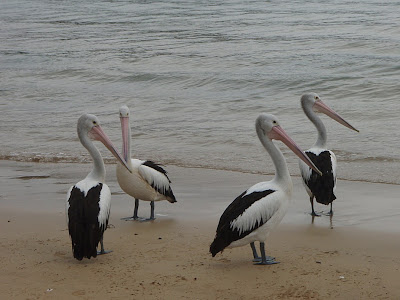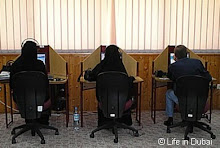...and hysterical tabloid misreporting.
A couple of days ago there was a short article in the Financial Times commenting on Dubai's current situation and the media stories about it.
It's one of the most accurate, well informed pieces I can recall reading over the past few years.
For several years we had the breathless, sometimes hysterical and often inaccurate articles about the growth, the lifestyle, the opulence, the riches, the excesses.
A few months back we started to get the tall poppy syndrome articles cutting Dubai down, reporting its collapse, again often ill informed and inaccurate and repeating dinner party rumours as facts.
These articles reported that there's nothing underpinning Dubai's economy because the oil has run out and our economy relies totally on real estate. Now the property bubble has burst the economy will collapse.
A quote in the FT article sums up the real situation brilliantly:
"Disneyland Dubai has crashed," as one Dubai-based banker put it, referring to headline-grabbing property projects, "but the core business model of Dubai remains sound."And that's what all the stories about Dubai don't mention, the basis for Dubai's existence, its history of trading. They're based on the misrepresentation that Dubai began a decade or two ago based on oil income, that real estate is all we now have.
The fact is that Dubai evolved from a fishing village into a trading centre around 1830 and has been an international commercial centre ever since, our location being then and now a critical factor in the city's success.
A hundred years ago Dubai had the largest shopping district in the area with over 350 shops in Deira. It had a huge pearl trading industry and gold re-exporting industry. Shipbuilding was an important part of the economy too. Doing business was Dubai's reason to exist and it always will be.
Oil was an unexpected bonus, not the foundations of the economy - production only began in 1969 - and the economy which was based on trading was thriving without it.
In 1960 the international airport opened and then in the early sixties the then Ruler Sheikh Rashid borrowed money from Kuwait to dredge the Creek so that trade could not only continue but be expanded. Port Rashid began operating in 1970 to develop even more trade.
When Beirut imploded in the early seventies international companies moved out, mainly to Athens and Cyprus. They soon gave up on those cities because of the lack of infrastructure, telecommunications in particular. Dubai had invested in the future and offered what they wanted, so very many of them moved here.
There have always been rumours about Dubai's demise by the way. When Jebel Ali Port was opened in 1979 I remember people laughing that it would be a white elephant, a complete waste of money. It's now one of the world's busiest ports.
They said the same about Dubal which opened the same year, and that's now one of the world's leading producers of aluminium, contributing billions to Dubai's economy.
Also in 1979 the Trade Centre opened, to more derision and rumours that it was tilting and sinking into the sand. At Jumeirah dinner parties they're saying the same today about Burj Al Arab!
Meanwhile Dubai carries on as a commercial centre, with now even more diversification and investment in infrastructure than ever.
You can compare the FT article with the tabloid nonsense being published with these two links.
In another example of the poor and biased reporting I regularly complain about, last week the UK Sunday Mirror ran a story headlined 'Celebs losing £80,000 a week on their Dubai mansions'.
First there's the stupidity of the claim. No-one loses money unless and until they sell a devalued asset.
Then readers with any kind of intelligence can work out for themselves by what's written that the thrust of the article is rubbish.
It claims that:
Celebs who bought the properties in their droves over the last few years have seen prices halve, with pads worth £3.2million in October now on the market for £1.6million.
And with the world's superwealthy cutting their losses and selling up, Dubai's bubble has well and truly burst.It also says that England footballers were some of the keenest buyers.
"When the squad stopped off in Dubai on their way to the 2002 World Cup in Japan and South Korea, they were shown plans for Palm Jumeirah...(eight of them) put down deposits on £800,000 sixbedroom villas at a special rate.The article goes on:
But last October, amid the global recession, Dubai was hit by a housing market crash, which has now cost investors billions.
Four bedroom villas worth £3million a couple of months ago are now being sold for £1.5million.So if four bedroom villas are worth £1.5 million, what do you think six bedroom villas are valued at? Remember they paid less than £800,000 for them - so how does the 'journalist' work out that they are losing £80,000 a week? The figures he gives actually suggest their investment has doubled at the very least.
It's a good example of the way the international media is now reporting about Dubai, the thrust of the articles being negative regardless of the facts they include.
You can read the tabloid nonsense
here, then you can read the sensible article
here.






















































